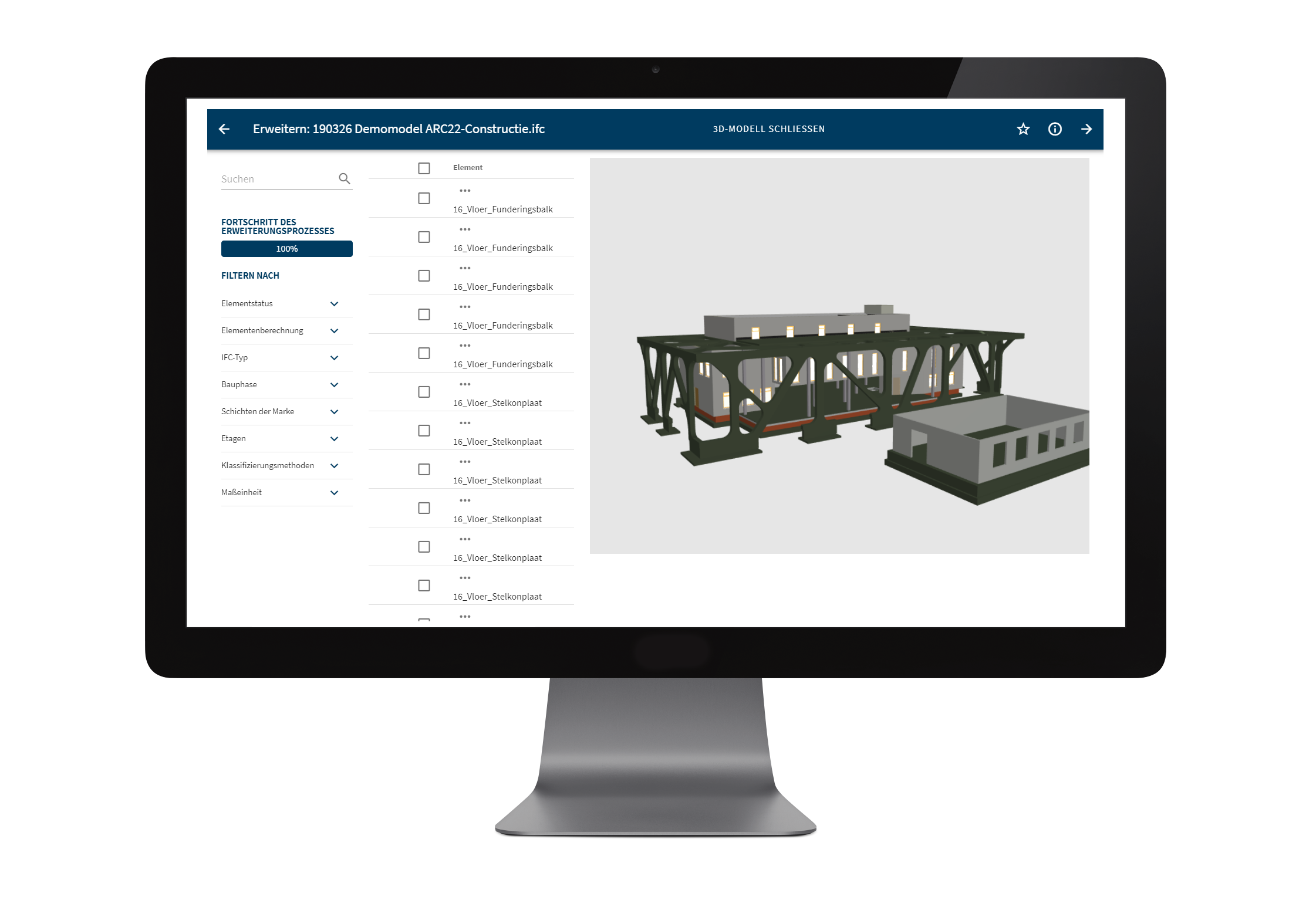02.02.2023
DERIX & madaster:
Cooperation for circular construction with timber

Reuse in the material cycle
The DERIX Group cooperates with madaster, the material cadastre in Germany, and hereby promotes the circular economy in the construction and real estate industry. In future, the timber engineering company DERIX will be able to make all digital structural data available to the madaster platform and thus effectively contribute to the circular use of building materials.
On the cloud platform madaster, owners can document the components of their property so that the components and materials can be efficiently reused in the event of subsequent deconstruction. This takes the form of a material passport that lists the resources contained in the building. The raw materials documented here can then be offered for sale via raw material exchanges when the property is deconstructed and used for the construction of new properties. The aim is to establish a successful circular economy: only those who know what is in a building can use it as a “material store”.
As a manufacturing company in engineered timber construction, the DERIX Group is committed to protecting the environment and strictly aligns its production processes with the principles of sustainability. Resource conservation and the reuse of raw materials play a central role here.
“The DERIX Group stands for climate protection and circularity – the commitment to take back our high-quality and durable timber components forms the basis for this,” explains Markus Steppler, Sales Manager at the DERIX Group. “To establish the circular economy system, we need documentation systems that make all building components transparent – this is an important prerequisite for reusing the material,” says Steppler. “With madaster, we now have a strong partner at our side who supports us in the storage and management of product data and with whom we share the vision of an infinite material cycle. Until now, the detailed 3D data as a digital twin for our production after construction completion unfortunately remained largely unused – this will change from now on.”
When documenting the building on madaster, the following applies: the more exact, the better. Ideally, all persons involved in the construction, such as planners and project developers, upload the exact information of the materials and components used to the platform.
“Until now, the responsibility of accurate documentation lay with the planning and construction service providers. With DERIX, we are now taking a further step towards circular economy. By means of .ifc export and soon its own interface, DERIX as a manufacturer registers all its timber components including all fasteners on madaster at the request of the building owner,” says Dr. Patrick Bergmann, Managing Director of madaster Germany. “This not only ensures a maximum degree of transparency, but also forms the basis for the subsequent take-back and reuse of used components.”
In fact, circular economy is also being called for more and more strongly and concretely from the environmental policy side: For example, the transition to a circular economy is explicitly mentioned as one of the environmental goals of the EU taxonomy – future projects should consist of at least 50% recycled materials. According to the coalition agreement of the Federal Government, a digital resource passport for buildings and building products is also to be mandatory from 2024.